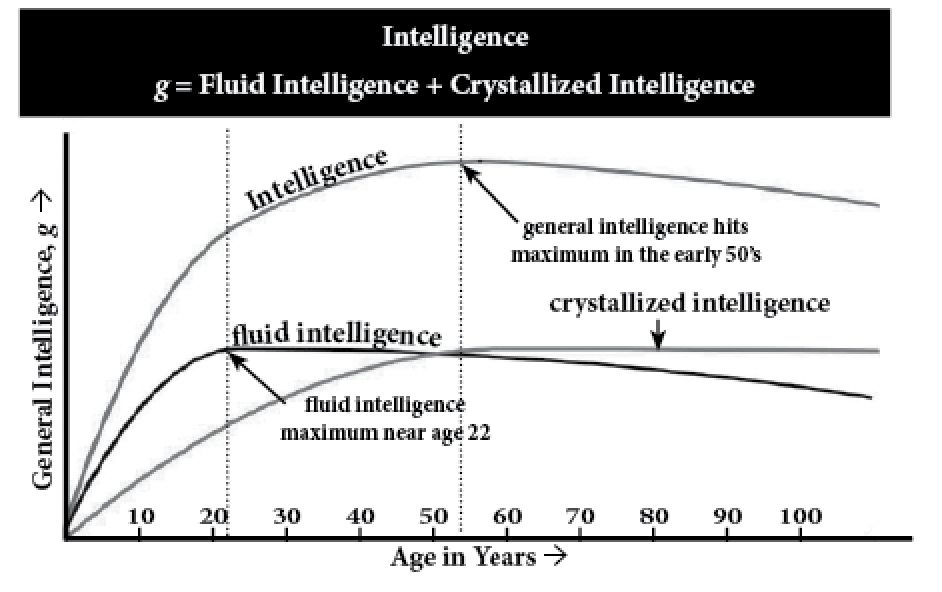In the 1940’s, Raymond B. Cattell attempted to create “culture-free” tests of intelligence. Believing that IQ tests contain implicit biases in favor of particular cultures, he sought to partition intelligence into two components–fluid and crystallized. He described fluid intelligence as “a capacity to perceive relations and educe correlates.” In essence, this is the capacity for new conceptual learning, abstraction, and problem solving and is measured by relatively culture-free tests such as Raven’s Progressive Matrices. In contrast, crystallized intelligence is that part of intelligence that has grown out of acquired intellectual skills and distilled from learning experiences. Cattell defined crystallized intelligence as “cognitive performance in which skilled judgment habits have become crystallized as the result of earlier learning application of some prior, more fundamental general ability to these fields.” In short, your fluid intelligence is your innate capacity for abstract reasoning, pattern recognition, problem solving, etc. as measured by IQ test, while your crystallized intelligence consists of your acquired skills and knowledge resulting from your experiences (sometimes called “wisdom”).
For example, a child’s proficiency at the game of tic-tac-toe would be mainly a measure of her fluid intelligence, if she had just learned the game; however, if she had played enough to learn the importance of occupying the center and corner squares, her proficiency could derive from this acquired (crystallized) knowledge.
Your “total intelligence” can be considered to be the sum total of your fluid and crystallized intelligence. It is believed that your fluid intelligence is innate and is mainly determined in your genetic makeup, (the size of your Neo-cortex being one factor). Fluid intelligence increases from birth to early adulthood, peaks out in early adulthood, and gradually declines with age. Meanwhile, crystallized intelligence continues to increase through age, so that your “total intelligence” doesn’t decline until later in life.

By immersing yourself in intellectual endeavors, you can attain the highest level of intelligence that your innate fluid intelligence allows, and also add to your “total” intelligence by increasing your crystallized intelligence.
